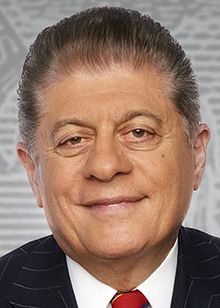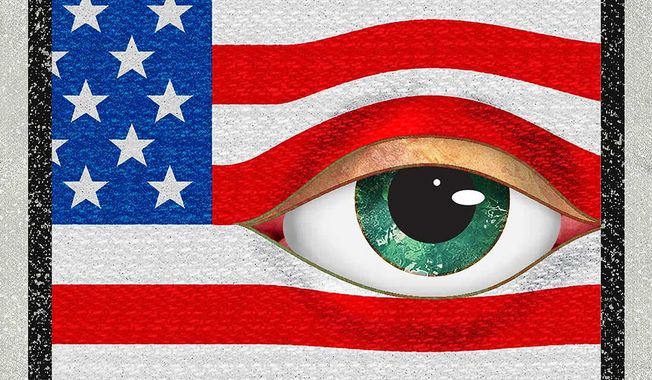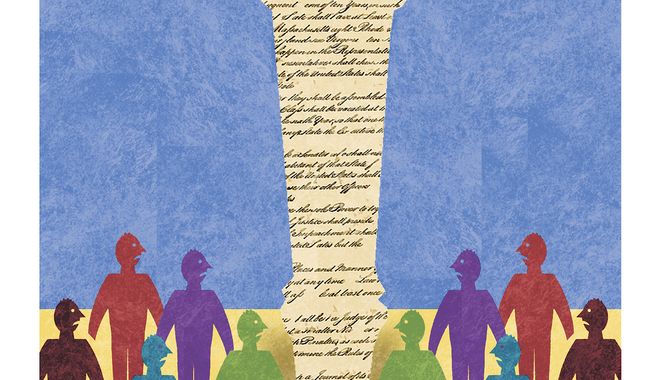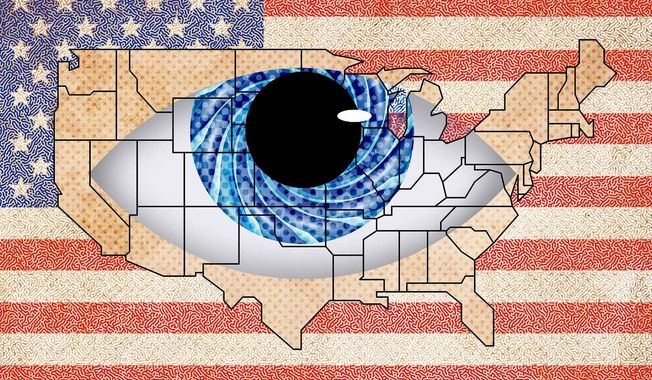Andrew P. Napolitano
Articles by Andrew P. Napolitano
Government violations of the Fourth Amendment
In his famous dissent in Olmstead v. United States, Supreme Court Justice Louis Brandeis in 1928 called the right to be left alone the most comprehensive of rights and the right most valued by civilized men. Published July 10, 2024
Twilight’s last gleaming
When a presidential debate devolves into an argument over golf scores, and afterward, the public argues about the candidates' mental acuity or honesty, when the question for voters is who is the sharper debater rather than who would be more faithful to the Constitution, when both major party candidates support mass surveillance, undeclared foreign wars and borrowing trillions of dollars a year to fund a bloated government, nearly all of which is nowhere countenanced by the Constitution, we can safely conclude that personal liberty in our once free society has been radically diminished and is in the twilight of its existence. Published July 3, 2024
Julian Assange is free
It wasn't until 1969 that the Supreme Court's modern First Amendment jurisprudence made it clear that whenever there is a clash between the government and a person over the constitutionality of the person's speech, the courts will give every benefit and draw every inference to the speaker, and none to the government. This is so because the freedom of speech is a natural right; it is also expressly protected by the Constitution, and thus, it is always to be presumed constitutional and lawful. Published June 26, 2024
What if it’s dangerous to be right when the government is wrong?
What if the government is a myth? What if it doesn't produce what we pay it for? What if it fails to safeguard our lives, liberties and property from its own agents? What if nothing changes after these failures and after elections? What if we're stuck with it? Published June 19, 2024
What is the U.S. doing in Ukraine?
Can the president fight any war he wishes? Can Congress fund any war it chooses? Are there constitutional and legal requirements that must first be met before war is waged? Published June 12, 2024
War and indifference: What is Biden’s goal in Ukraine?
Which is more destructive to personal liberty: a government that engages in secret wars, or a public and news media that are indifferent to it? In the current American toxic stew, we have both. Published June 5, 2024
American Caesar and constitutional indifference
A recent column in The Economist asking if the United States is dictator-proof got me thinking about whether our constitutional guarantees are secure. Published May 29, 2024
The perils of an outsized federal government
Today, the government claims it can right any wrong, tax any event, intrude upon any relationship, or even suppress any speech that it chooses. Published May 22, 2024
Perils of the Antisemitism Awareness Act
Can an idea be dangerous? Can a dangerous idea be expressed? Can the government punish ideas it deems to be dangerous? Published May 15, 2024
Is your car spying on you?
Democratic Sens. Ron Wyden of Oregon and Edward Markey of Massachusetts revealed that automobiles sold in the U.S. with a GPS or emergency call system accumulate the vehicle's travel data on computer chips. Published May 8, 2024
Killing the Constitution: Revised FISA is worse for freedom than its predecessor
Thanks to legislation last weekend, the United States in 2024 will soon resemble East Germany in the late 1980s, where nearly everyone was a spy and no one could talk about it. Published April 24, 2024
The right to assemble: Holding an organizer liable for another’s violent acts
Last week, the Supreme Court effectively abolished the right to assembly in three Southern states. Published April 17, 2024
CIA wants more power to spy on Americans
Americans need to be aware of the unbridled propensity of federal intelligence agencies to spy on all of us without search warrants as required by the Fourth Amendment to the Constitution. Published April 10, 2024
Government attacks freedom of speech
Holy Week was not a good week for personal liberty, as governments across the United States engaged in direct and subtle attacks on free speech. Published April 3, 2024
Taking Easter seriously: Resurrection of Jesus is the linchpin of human existence
When the government takes away freedom -- whether by fiat or legislation -- it steals a gift we received from God, it violates the natural law and the Constitution, and it prevents us from seeking the truth. Published March 27, 2024
Can Congress ban TikTok?
Congress now wants to give the president of the United States the lawful power to suppress websites he thinks are spying on their users or permitting foreign governments to influence what Americans see on the sites. Published March 20, 2024
My dinner with Pope Francis: Examining the philosophy of St. Thomas Aquinas
I spent last week living and studying at the Vatican as a guest lecturer at the Pontifical Academy of Social Sciences, or PASS. Published March 13, 2024
Governments do not take rights seriously
The world is filled with self-evident truths -- truisms -- that philosophers, lawyers and judges know need not be proven. Published March 6, 2024
Torturers undermine the values upon which the Constitution is based
As the pretrial hearings in the case of Khalid Shaikh Mohammed and others charged with masterminding the Sept. 11 attacks proceed, the government continues to stumble with its own witnesses. Published February 28, 2024
New York state can’t say how it was harmed by Trump’s commercial loans
Last week, a New York court ordered the Trump Organization and its principals to forfeit nearly $400 million to the state government. It was government theft at its worst. Published February 21, 2024























